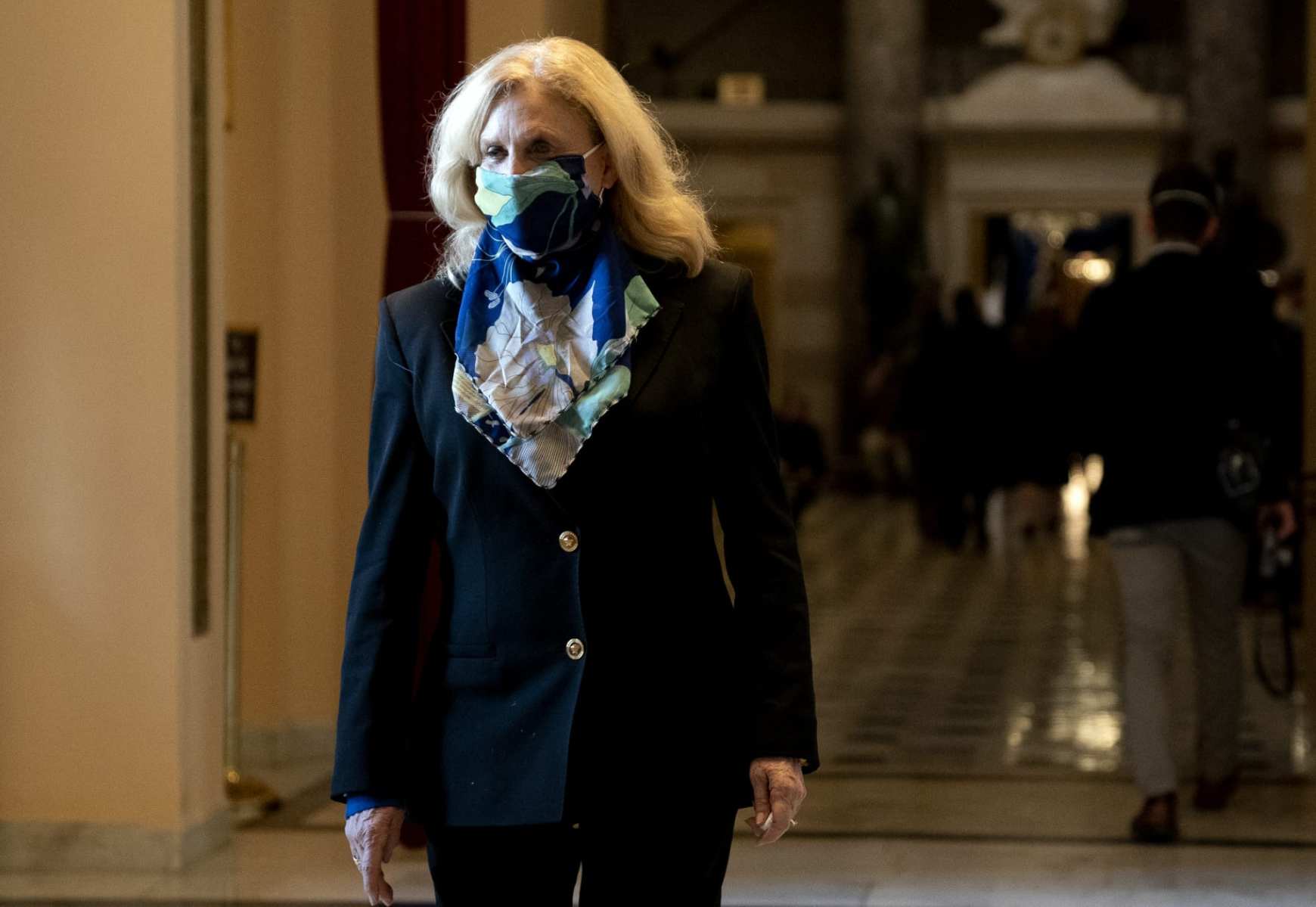About one month after pro-Trump rioters stormed the U.S. Capitol, The 19th reached out to all 143 women in the 117th Congress to ask about their experiences on January 6. Twenty-three shared their points of view from that day. We are also publishing each lawmaker’s full account of that day. Here is what Rep. Carolyn Maloney of New York told The 19th. The transcript has been lightly edited:
It started out as a day like any day. Because of COVID, I was there with only two staff members, including my chief of staff. I just want to put this in perspective. I live next door to the Pakistani ambassadors to the United Nations. I always want to be a good neighbor and welcome them to the country. I remember a conversation I had with one of them a couple years ago. He said, “I want to tell you what I most admire about your country.” He told me it was the peaceful transfer of power. His country had never experienced it at that time. He said he looked at the world and few countries have peaceful transfer of power, “but your country has always had it in an organized way.”
So what was most horrifying, shocking and painful to me about that day, and to this day, was that that value has been violated, and it will go down in history as one of the darkest days in American history. I think all of us have a responsibility to how we preserve it for the future.
We were called in to certify the electoral votes. We had been asked to leave if we were not part of the proceedings to debate each of the contested electoral votes. I walked and went back to my office and turned on the television to watch the proceedings. When they started debating, I believe we had only 11 members of the Democratic Party and then members of the Republican party plus support staff and the sergeant-at-arms on the House floor. We were starting to debate Arizona and [Rep. Paul Gosar] was speaking, saying the vote was not valid. He started asking for order in the chamber.
At one point, someone approached [Speaker Nancy Pelosi], someone I didn’t recognize in her staff. They were obviously telling her she had to leave. She was shaking her head that she didn’t want to. It wasn’t alarming to me. I thought, like every day, she was just called into another meeting, possibly with [Sen. Chuck Schumer] to discuss what was happening. Then Gosar said there’s not order in the chamber.
I remember thinking, “Something is wrong.”
I watched the proceedings on the television in my office. I became alarmed when a security detail surrounded Rep. Steny Hoyer, the House majority leader, and whisked him out of the room very quickly. If I remember correctly, the screen just went sort of blank at this point. I couldn’t see what was happening on the House floor, but I could see the west front of the building. I noticed a large group of people walking through an entrance that isn’t open to the public. The police officers were scarce, not like now when there’s so many National Guard members you can hardly move. There were a lot of people out on the lawn. A lot of times we gather there for speeches, but it just looked like a lot of people.
And then during the day, there were officers I could see in the back and side of the building, but we could see there was activity on the lawn in front of the Supreme Court. There were gatherings of people moving through.
They got in a little bit after. About an hour after Nancy was whisked out of the chamber, we were contacted by someone in [Rep. Adam Schiff’s] office. The staff member said he was alone and asked if he could come to our office. He stayed with us the whole time.
I never felt fear that they were going to invade my office. I felt horror, absolute horror, at the disruption of the peaceful transfer of power and disturbed that they had succeeded in disrupting our work. Our work was to certify the Electoral College. We didn’t go back into session until 8 p.m. that night.
I kept thinking we had to continue our work. I felt very strongly that we had to complete our work. We went back into session, and the votes took place. We were there until 4 a.m. in the morning. I think that being a member of Congress is in a unique position: When you have a crisis, do something about it. As chair of the Oversight Committee, I have written several letters requesting documents to see if there are other [insurrectionists] in our ranks.
At least 12 off-duty police officers from around the country were involved. I wrote a letter to see if police chiefs could find other people that supported the insurrection at the Capitol. We’ve asked for more documents from them. I’m very interested in the organization called Parler, which the rioters used to organize. I sent a letter yesterday about whether President Trump tried to purchase ownership of it. The language on the site was “kill people, take over the Capitol,” and it just emerged about a year ago. It’s now become a major organizing tool. I introduced a bill, specifically targeted at what happened on Jan. 6, called the Insurrection Financing Transparency Act to give the authority to law enforcement to follow the money and see who is financing the insurrection, the busses, the meetings and the platform. I’ve also written to every agency to preserve all of the documents from that day.
My key takeaway would be when it comes to the peaceful transfer of power, we didn’t even recognize that we’ve taken for granted that we have it. It was violated. That’s really shocking.






